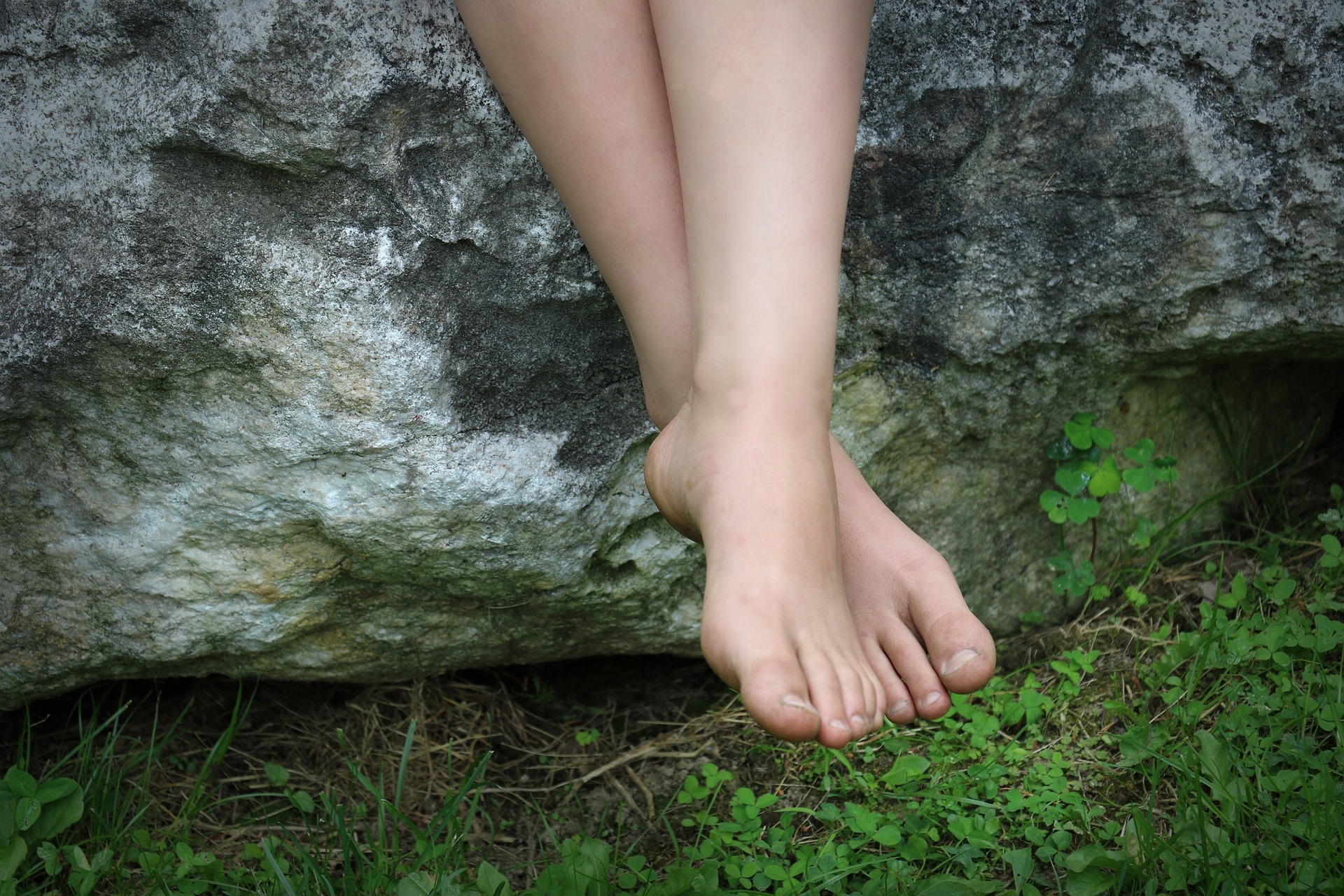Can Walking Barefoot Improve Your Health?

PREMIUM CONTENT for MEMBERS ONLY
By Fiona Riddle
In our modern world, it is typically seen as socially unacceptable and often unsafe to walk around barefoot. We are accustomed to wearing shoes for a majority of the day whether we are at home in slippers, walking to the grocery store in sneakers or in the office in loafers or oxfords. And yet there is a great deal of scientific evidence suggesting the numerous health benefits of what is commonly known as “grounding” or “earthing.”
“…this therapeutic technique can realign the body’s electrical energy by connecting to the earth…”
Grounding refers to direct skin contact between the body and the earth either by walking barefoot, laying on the ground, gardening with bare hands or using modern grounding technologies. In short, this therapeutic technique is thought to realign the body’s electrical energy by connecting to the earth, which supposedly neutralizes the body’s positively charged electricity. While there is no question that our modern lifestyle has effectively disconnected us in many ways from the earth, the therapeutic benefits of “earthing” remain to be established.
Research suggests that this disconnect from nature “may be a major contributor to physiological dysfunction and unwellness.” Published evidence suggests that grounding for just 30 minutes a day may provide a wide range of health benefits such as lower levels of inflammation, better sleep, increased wound healing, alleviation of aches and pain, a reduction in stress and anxiety and much more.
“Underlying many […] diseases is systemic inflammation brought on by poor dietary habits, physical inactivity, and other modern lifestyle habits.”
Modern non-infectious chronic diseases such as heart disease, stroke, cancer and diabetes are responsible for over 70% of deaths worldwide each year. As discussed many times in this blog and reviewed in The Gut Immune Connection, underlying many of these diseases is systemic immune activation brought on by poor dietary habits, physical inactivity, and other modern lifestyle changes. While changing these lifestyle habits and implementing a healthy diet have all been shown to have a positive impact on health, many situations are difficult to control such as sitting all day at work, stressful work or home lives and constant inundation with toxins in the air, water and our food. Some believe that exposure to electromagnetic frequencies in the environment is one of these harmful influences.
“…these so-called “earth antioxidants” have a major impact on reducing inflammation and supporting a healthy immune system.”
Grounding may be able to reverse or protect the body from many of these stressors and reduce systemic immune activation. The earth is negatively charged and continuously generates electrons, which are thought to act as antioxidants in the body and minimize the negative effects of reactive oxygen species (ROS), more commonly known as free radicals. Just like antioxidants in food, these so-called “earth antioxidants” may have a major impact on reducing inflammation and supporting a healthy immune system.
Similarly related to a decrease in inflammation markers is the reduction in and alleviation of pain, either from chronic ailments or acute injuries. A 2015 report found that grounding reduces pain “and alters the numbers of circulating neutrophils and lymphocytes, and also affects various circulating chemical factors related to inflammation” such as white blood cells and cytokines. In one specific study, while quite small, grounding was found to increase recovery from delayed-onset muscle soreness (DOMS), which is a common result of intensive exercise. Study participants were grounded with conductive patches placed on their calves and on the bottom of both feet, suggesting modern grounding technologies are effective when walking barefoot is not an option.
“…participants who were grounded experienced a reduction in night-time cortisol levels and more normalized circadian cortisol profiles.”
Cortisol is a natural hormone that normally reaches a peak level in the early morning hours and reduced level at night for optimal sleep-wake cycles. A disturbance of the circadian rhythm of cortisol and chronically elevated levels are associated with higher levels of stress and related symptoms such as impaired sleep, anxiety and fatigue. Multiple studies have reported improvements in sleep in subjects who slept grounded, meaning with a conductive mattress pad connected to the earth. In one study, participants who were grounded experienced a reduction in night-time cortisol levels and more normalized circadian cortisol profiles. These participants typically had elevated levels above what is considered normal. Lowering cortisol levels also was associated with reduced stress and pain levels.
“…simply spend time outside barefoot such as at the park, beach or in your own backyard.”
If you are interested in getting started with earthing, simply spend time outside barefoot such as at the park, beach or in your own backyard. Gardening without gloves is another way to receive benefits and may have additional benefits for getting in contact with environmental microbes. Additionally, there are many wearable and in-home devices that are proposed to provide similar benefits without having to spend time outdoors such as sleeping mats, arm cuffs, patches and conductive pads.
Grounding is not currently a strategy endorsed by mainstream science or medicine or by the editors of this blog, however, it is gaining in popularity. Many claim that it is a largely overlooked approach when it comes to overall health and healing. Since it is so readily accessible to the general public, grounding can be used as a rather harmless and inexpensive tool that may alleviate many of the symptoms resulting from chronic disease and our modern lifestyle. Reconnecting to the earth, by spending more time in close contact with nature has been shown to have many positive effects on our mind and body, including our microbiome. Which one of these multiple effects is responsible for reported health benefits remains to be determined.

Fiona Riddle is a Certified Health Coach with a degree in Psychology from UCLA. She is passionate about a holistic approach to health when working with her private coaching clients. She is an avid cook, constantly creating and sharing new recipes on her Instagram (@feelgoodwithfi) to showcase simple clean home cooking.
✓ This article was reviewed and approved by Emeran Mayer, MD